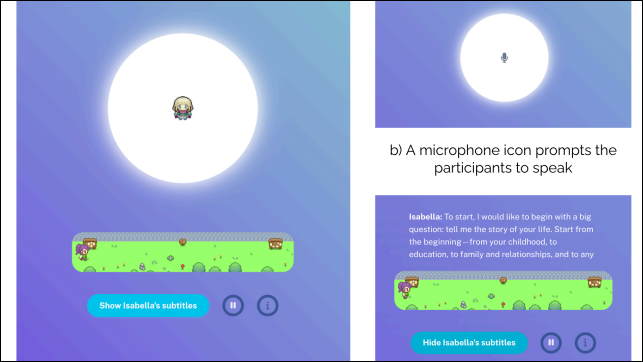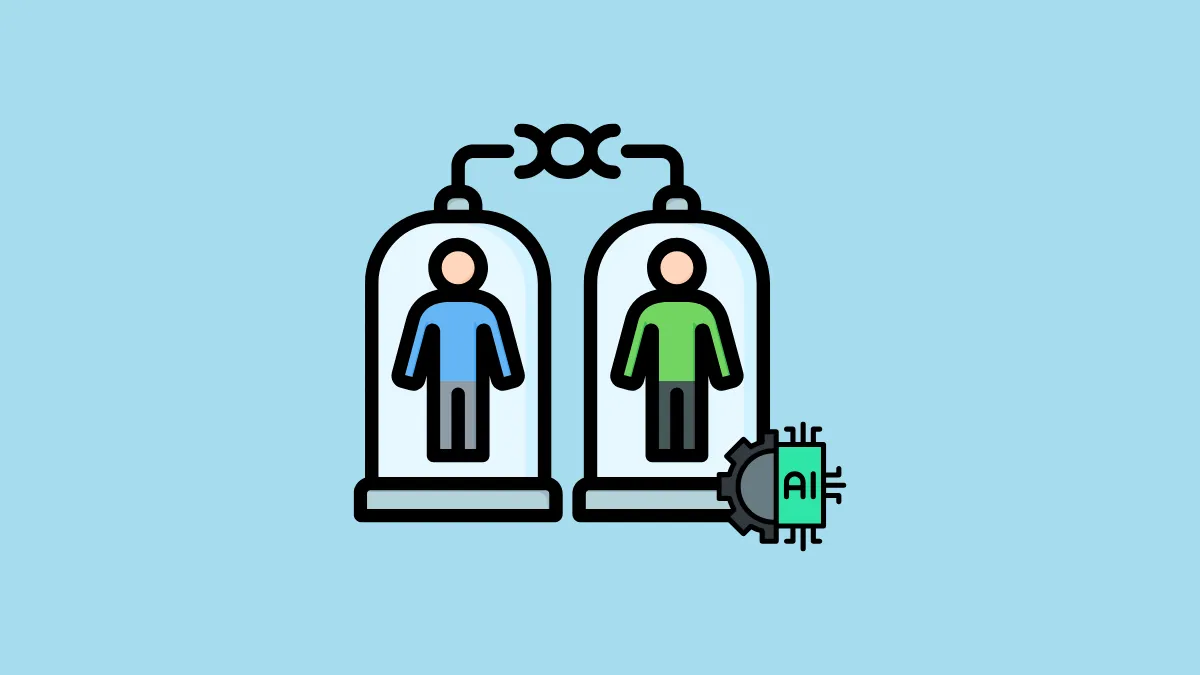What if you had a bunch of little AI-powered yous running around mimicking your core personality traits and logical thinking? You'd think that'll take a lot of time. But apparently, it only requires you to sit down with the AI for a two-hour interview.
Researchers at Stanford and Google DeepMind have published new research that shows it's now actually possible in a new research paper. The team, led by Joon Sung Park, a Stanford PhD student in computer science, interviewed around 1052 people from a stratified sample in the US. The process included interviewing the participants for around two hours. The interviews were then used to construct 1000 generative agents. The agents were constructed using the transcript of the interviews combined with a large language model (LLM).
The interviews themselves were conducted using AI and included questions about the person's childhood, their formative memories, their careers, etc.

The participants were then asked to participate twice in a series of personality tests, general social surveys, and logic games, two weeks apart. The agents were also asked to complete the same series of tests. Remarkably, the results aligned 85% of the time.
The study has not yet been peer-reviewed so anything it says needs to be taken with a grain of salt. However, it does demonstrate a new approach to building personalized AI agents, or "simulation agents" as the study calls them.
But why create AI replicas of individuals? The goal of the research is to make it easier for social science and other researchers without the need to include human subjects in studies that can be too expensive, impractical, or even unethical. However, that's far from the only use case.
Park highlights the efficiency of qualitative interviews in capturing an individual’s uniqueness. Unlike surveys, which often rely on standardized questions, interviews can uncover deeply personal and idiosyncratic details, such as transformative life events or specific perspectives that shape someone’s behavior. This data, distilled into a language AI can process, allows for the creation of highly personalized agents.
This is not the first time AI has been used to create clones of people. However, this method contrasts with existing approaches by companies like Tavus, which create digital twins by analyzing large datasets such as customer emails. The new approach shows how significantly the process could be streamlined as the amount of information needed to create such agents might not be as large as previously thought.
While these advancements in the AI space are marvelous, for many people, reading how easily a digital clone of you can be created will point towards a dystopian future run by AI. The technology itself comes with caveats and potential dangers.
We're already living in a world of deepfakes and misinformation accelerated by the advent of AI tools. With technology that demonstrates how easily AI clones can be created, the potential for misuse to impersonate individuals online without their consent runs rampant.
Additionally, while the researchers used standard assessments like the Big Five personality traits and the General Social Survey to evaluate the agents, these tests primarily capture broad behavioral patterns rather than the subtleties of real-world decision-making.
For instance, the agents performed quite worse in the “dictator game” – a behavioral test that explores values like fairness. This highlights a limitation in their ability to fully replicate the nuanced reasoning and moral judgments that make human decision-making unique.
Nonetheless, this research represents a significant step forward in the intersection of AI and human psychology. Park envisions a future where "you can have a bunch of small ‘yous’ running around and actually making the decisions that you would have made".
Whether that sounds exciting or dystopian might depend on your perspective, and perhaps, how comfortable you are with a digital version of yourself navigating the world alongside you.

